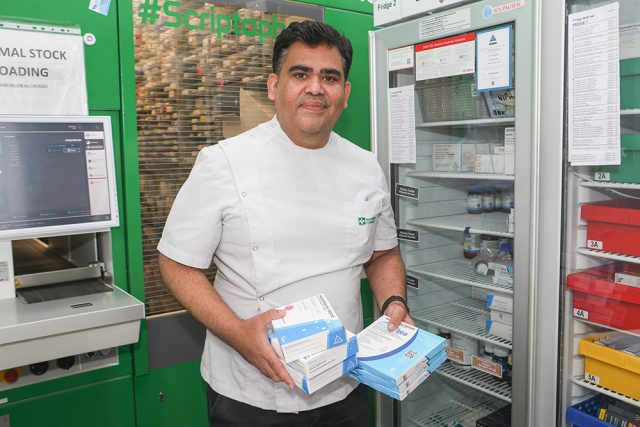With flu season right around the corner, experts are encouraging local residents to roll up their sleeves and get vaccinated.
According to NSW Health, there has been almost double the number of cases of influenza A and B already in 2024 compared to this time last year.
Though this early spike has raised concerns about the severity of the upcoming flu season, Sunit Ruparelia from TerryWhite Chemmart Penrith Compounding says that it is possible to turn things around – as long as everyone chips in.
According to Ruparelia, vaccination rates in Penrith last year were good, and he’s hoping to see people take it seriously so that the same thing can be replicated this year, rather than dismissing it as being similar to the common cold.
“Some people may dismiss the seriousness of the flu. Normally, this perception changes when the individual catches the flu and is hospitalised or has a severe disease,” he said.
“We have patients who present to get the flu shot only because they were hospitalised with severe disease the year before.”
Getting vaccinated is imperative in reducing an individual’s risk of getting sick with the flu.
“One may still contract the flu despite being vaccinated, [but] the vaccine can often lessen the severity and duration of the illness,” he said.
“This can help prevent severe complications and hospitalisations.”
Getting vaccinated against the flu also helps to protect vulnerable populations, like young children, older adults, pregnant women, and individuals with underlying health conditions, who are at higher risk of complications from the illness.
“Vaccination helps reduce the overall spread of the flu virus in the community,” he said.
Though he notes that everyone should be getting vaccinated, Ruparelia said there are specific demographics that public health authorities typically prioritise for flu vaccination due to their increased risk of complications from the flu. These demographics include young children, older adults, pregnant women, individuals with chronic health conditions, healthcare workers, caregivers of high-risk individuals.
Vaccines can be administered at GP clinics, pharmacies or workplace clinics.
The National Immunisation Program Vaccinations in Pharmacy (NIPVIP) Program allows eligible patients to access free National Immunisation Program (NIP) vaccines in a community pharmacy, with no out-of-pocket costs.
Patients can book online at terrywhitepenrith.com/flubooking, or you can walk in.
In addition to getting vaccinated against the flu, there are several other measures individuals can take to reduce their risk of getting sick and to manage the flu if they do become ill:
1. Practice good hygiene: Wash your hands frequently with soap and water for at least 20 seconds, especially after coughing, sneezing, or touching surfaces in public areas. If soap and water are not available, use alcohol-based hand sanitiser.
2. Cover your mouth and nose: Use a tissue to cover your mouth and nose when coughing or sneezing, and dispose of used tissues immediately. If a tissue is not available, cough or sneeze into your elbow rather than your hands.
3. Avoid close contact: Try to avoid close contact with individuals who are sick, and if you are sick, stay home from work, school, and other public places to prevent spreading the illness to others.
4. Clean and disinfect: Regularly clean and disinfect frequently touched surfaces, such as doorknobs, light switches, countertops, and electronic devices, to reduce the spread of germs.
5. Stay hydrated and rest: If you do become ill with the flu, drink plenty of fluids to stay hydrated and get plenty of rest to help your body recover.
6. Take over-the-counter medications: Paracetamol or ibuprofen can help alleviate symptoms such as fever, body aches, and headaches. Always follow the dosage instructions on the medication packaging or ask your pharmacist if you have any questions or concerns.
7. Seek medical attention if necessary: If you experience severe symptoms such as difficulty breathing, persistent chest pain, confusion, or sudden dizziness, seek medical attention promptly, as these may be signs of complications from the flu.
8. Consider antiviral medications: If you are at high risk of flu-related complications or have severe symptoms, your GP may prescribe antiviral medications to help reduce the severity and duration of the illness. These medications are most effective when taken early in the course of the illness.

Cassidy Pearce
Cassidy Pearce is a news and entertainment journalist with The Western Weekender. A graduate of the University of Technology Sydney, she has previously worked with Good Morning Macarthur and joined the Weekender in 2022.

